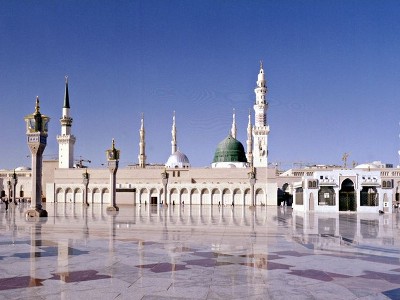
Rasa News Agency reports from Egypt – A controversial plan has emerged in Saudi Arabia to demolish the holy tomb of the Prophet Muhammad (S) and relocate his body to an anonymous grave in the Jannat al-Baqi’ cemetery, in a move which is likely to draw an angry response from the Muslim world. The Wahhabi regime says this is part of a necessary plan to expand the Prophet’s Mosque.
A leading Saudi academic put forward the proposal as part of a consultation document, which has been circulated among the supervisors of the Prophet’s Mosque [Masjid an-Nabi] in the holy city of Madinah, where the Prophet (S) are laid to rest under the green dome, visited by millions of pilgrims and regarded as Islam’s second-holiest site, the UK’s Independent newspaper reported this week.
Several scholars at Egypt's renowned al-Azhar University have attacked this blasphemous Saudi plan in a statement, saying they considered tampering with bodies religiously forbidden. They pointed out that the tomb of the Prophet (S) is considered holy by Islamic law and it cannot be tampered with, even under the pretext of expanding the Prophet’s Mosque. Mukhtar Marzouqi, the dean of the Faculty of Theology at al-Azhar University in Asyut, has stated: “We view the transferring of the body of the Prophet (S) from his burial site to another place as impermissible. He died in this place and was buried there by his righteous companions.”
A member of the Council of Senior Scholars of al-Azhar, Mahmoud Muhanna, warned that the transfer of the remains of the Prophet (S) will lead to great strife and will “open the gates of hell on Muslims” as it is against Islamic law to desecrate graves. He pointed out this revolting plan was a creation of Wahhabi’s and was advocated by Muhammad Nasiruddin al-Albani, an infamous Wahhabi cleric of the 20th century. Shaykh Muhanna called on all enlightened Muslim scholars to fight these false ideas and studies.
“Just think about digging up the noble grave and transferring [the Prophet’s] body! It is a crime will lead to great strife of which we do not know the extent. The tomb of the Prophet (S) must remain where he was buried until the Day of Resurrection,” Shaykh Muhanna stated.
111/112